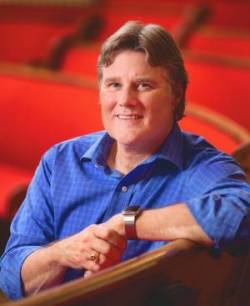The path to wisdom
Seeing ourselves as God sees us
By N. Graham Standish
True wisdom means becoming aware—aware of me, aware of you, aware of God. Wisdom is alertness of my perspective, your perspective, and God’s perspective, all at the same time. The truly wise act in ways that respond to all three.
Wisdom is one of the hardest dispositions to describe. What is wisdom? We recognize it when we stand before a person of deep wisdom—a sage who seems to drip insight, perspective, and judiciousness. We recognize it, but we can’t always describe what makes this person wise.
The reason we have such a hard time describing wisdom is that too few pursue it. We pursue knowledge, especially logical, analytical, formulaic knowledge. We pursue pleasure, or at least to activities that may bring relief to the angst or anger they may feel in life. We pursue shortcuts, hoping to bypass the struggles of life, while, ironically, creating more struggles. We pursue leverage over others so that we can feel stronger and more in control of our destinies. We pursue power, dominance, influence, distractions, dependence, rebelliousness, and so much more. Wisdom,…? Not so much.
Wisdom is hard to achieve because it requires getting out of our own worldviews, and we spend too much of our lives trapped inside prisons of constricted perspectives.
Wisdom requires first that we devote ourselves to understanding ourselves—our failures, our fears, our frustrations as well as our potential, prospects, and possibilities. Who has the willingness to understand themselves when so many people fear self-discovery, dismissing it as psychobabble or navel-gazing?
Self-understanding is only one part. Wisdom also requires us to nurture enough personal empathy, compassion, and understanding to recognize the perspective of another. In other words, wisdom seeks to see ourselves and life through another’s eyes. Again, who has the time to grapple with this in an age where we are all trapped in our own ideological igloos? We live in an age where so many see compromise as weakness, those who disagree with us as imbeciles, and other faiths, ethnicities, and ways of thinking as threats?
Finally, real wisdom begins to blossom as we try our best to glimpse God’s perspective. This means gathering all we’ve learned from the Bible, worship, prayer, and life to gain a sense of how God sees us. This requires spiritual work to peer beyond the veils of mere human thinking.
The great 15th-century mystic, Thomas à Kempis speaks to this striving for God in his classic, The Imitation of Christ, saying:
“If you want to learn something that will really help you, learn to see yourself as God sees you and not as you see yourself in the distorted mirror of your own self-importance. This is the greatest and most useful lesson we can learn: to know ourselves for what we truly are, to admit freely our weaknesses and failings, and to hold a humble opinion of ourselves because of them. Not to dwell on ourselves and always to think well and highly of others is great wisdom and perfection.”
Obviously we can’t truly see ourselves from God’s perspective, but neither can we truly see ourselves from others’ perspectives. Nor can we truly understand our own perspectives, which are a constant mixture of impulses, emotions, and rationality. But we can try, and in trying we gain greater awareness of everything. And it is in the striving for the mixture of all these perspectives that we slowly nurture wisdom.
By expanding our awareness to become multi-dimensional, we begin to become alert how God speaks to us through everything. This is the path to wisdom.
The Rev. N. Graham Standish, Ph.D., M.S.W. (www.ngrahamstandish.org) is senior pastor of Calvin Presbyterian Church in Zelienople, Pennsylvania (www.calvinchurchzelie.org). He is the author of seven books on spirituality and church transformation, and is an adjunct faculty member of Pittsburgh Theological and Tyndale Seminaries. He also has a background as a spiritual director, and as an individual and family therapist.